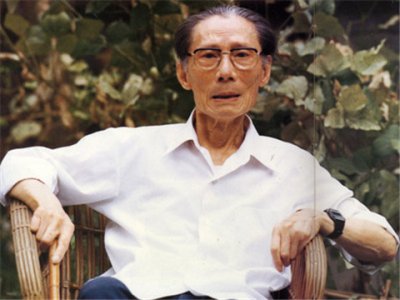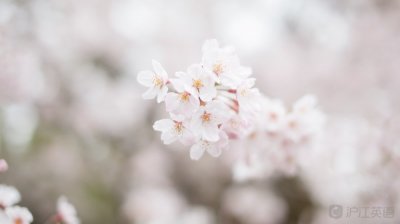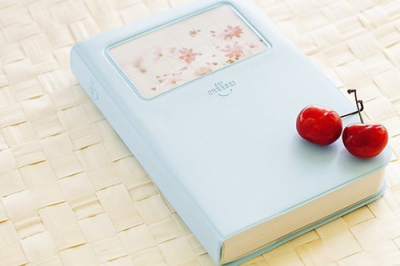张培基英译散文赏析之《无题》

无题No Title
夏衍Xia Yan
译文摘自张培基《英译中国散文选二》
静下来想想,我这样一个出身贫寒,经历坎坷的人,居然能活到92岁,实在有点奇怪。 过了80岁,经常有人问我,有什么养生之道。我不仅不懂得养生,而且还有一些不好的习惯。Often, in my calm moment of contemplation, I find it amazing that a man like me who was born of a poor family and has suffered a lifetime of frustrations should have lived to the age of 92. When I was in my eighties, people often asked me for advice on how to keep in good health. But the fact is, instead of a recipe for healthy living, I have some very bad habits.
要点:
1,“静下来想想”可以直译为when I calm down and think,现译为often,in my calm moment of contemplation,用“in one’s contemplation”代替动词 think,这种以介词译动词的形式值得注意。Often 是增益成分,表示作者的思想活动是经常性的
2,本段出现了2次两次“养生(之道)“,译者分别采取了不同的表述,分别译为” how to keep in good health“和” a recipe for healthy living“二者都表示养生的方法,这两种译法可以推及到翻译各种有关”方法“的表述~
3,“我不仅不懂得养生…“译为But the fact is, instead of a recipe for healthy living…,the fact is 是增益成分,用以加强语气
综述:
夏老的文字朴实平易,不落俗套,之前分析过他的《野草》,这篇小品文也是亮点颇多,不仅是翻译手法还是文章述说的道理,都耐人寻味~
我性急图快,走路快,下笔快,吃饭更快,简直是狼吞虎咽,因此,得了胃病、十二指肠溃疡。医生治好了我的病,但没有治好我的习惯。I’m impetuous and tend to rush all things. I walk quickly, I write quickly, I eat even more quickly or, so to speak, just wolf down my food. As a result I became ill with duodenitis. The doctor at last cured me of my stomach trouble, but not of my bad habit of eating quickly.
要点:
1,“性急图快“采用拆分译法译为impetuous and tend to rush all things
2,“简直是狼吞虎咽“译为or, so to speak, just wolf down my food,其中wolf down 意为”狼吞虎咽地吃“,同义词还有gobble,gorge.
3,so to speak (可以这么说)意同”简直是“此外还有nothing less than,no less than 也可表示此意
我偏食。“史无前例”的那十年之前,我不吃瓜,很少吃蔬菜和水果。70年代进了秦城监狱,天天窝窝头,顿顿萝卜白菜,这样才勉强改造过来,但一旦出狱,依旧我行我素,少吃苹果如故。I’m a picky eater. Prior to the outbreak of the 10-year domestic political turmoil in 1966, I refused to eat melon, and seldom took vegetables and fruit. During the seventies, when I was confined in jail in Qincheng, my daily three meals consisted of nothing but corn buns plus turnip and Chinese cabbage. That, however, cured me of my being choosy about food. But, once out of prison, I slipped back to my old self, taking little vegetable and fruit.
要点:
1,“我偏食“是一个主谓结构,译者将动词部分译为带er的名词形式,即 I’m a picky eater.在《古城》中也有类似结构,即“那是一只灰色的铁鸟。对这古城,它不是完全陌生的。“译为That was a grey iron bird by no means a stranger to ancient city. stranger 很好地体现了原文的修辞手法,两句合译也使得译文紧凑连贯
2,“‘史无前例‘的那十年之前“即”文化大革命“那十年之前”译为Prior to the outbreak of the 10-year domestic political turmoil in 1966,(即1966年开始的国内政治动乱之前),译者采用了意译法,并没有按“文化大革命”直接译,而是对其进行解释说明,便于国外读者理解
3,“天天窝窝头,顿顿萝卜白菜”按意思合译为my daily three meals consisted of nothing but corn buns plus turnip and Chinese cabbage.(我的三餐只有…)既简洁又体现了翻译的灵活性
4,cured me of my being choosy about food即“矫正过来”,注意翻译时要指明是把什么矫正过来,另外在选词方面,choosy的选择也与前文picky相照应
5,“依旧我行我素”,译者灵活处理为I slipped back to my old self(故态复萌),其中slip back into经常用作形容“故态复萌”“或重蹈覆辙”~
综述:
本段的译文,充分体现了的文学翻译在选词造句上的灵活性
我不喝酒,但从30岁那年开始抽烟,先是偶尔为之,后来上了瘾。在文化部工作那十年,每天两包(40支),连手指也熏黄了,到晚上唇干舌燥,也毫无戒意。当然,这中间也有曲折,进秦城之后,被强制戒了,但回家后,第一件事就是向家人要烟。为了检验自己的意志力,主动戒了几个月,没有事,又抽上了。有人在报刊上写文章讲吸烟有害,我认为,这是危言耸听,有逆反心理。歪道理的理由是,我烟龄几十年还活到这把年纪。奇怪的是,两年前的一个早上,点上第一支烟,觉得不是滋味,掐灭了,从此,不戒自戒。在我的吸烟史上画了一个句号。I’m a teetotaler, but I began to smoke at the age of 30. At first I did it only occasionally, but later I became addicted to it. During the ten years when I was with the Ministry of Culture, I used to consume two packs a day, containing 40 cigarettes, till my fingers were yellowed and my lips and tongue parched. But I still couldn’t get out of the tobacco habit. Smoking was banned in prison, but as soon as I was released the first thing I did was to ask my folks for a cigarette. Once, by way of testing my willpower, I stopped smoking for several months, but only to end up in a relapse. Some people dwelled on the harmfulness of smoking in articles published in newspaper or magazines. To me, however, they were exaggerating things just to scare people and sort of manifesting a rebellious mentality. I reasoned lamely that decades of heavy smoking hadn’t shortened my life at all. Strange to say, early on a certain morning two years ago, my first cigarette of the day happened to be so sickening that I stubbed it out immediately and from then on smoked no more. That marked the beginning of my clean break with cigarettes.
要点:
1,“我不喝酒”译为I’m a teetotaler,其中teetotaler意为“绝对禁酒者,滴酒不沾的人“,上稳重”我不吃瓜“译为I refuse to eat melon.两个”我不…“句型均未采用I don’t 句式,体现翻译灵活性
2,“连手指也熏黄了,到晚上唇干舌燥“注意这两句要保持主语一致才好看,因此译为till my fingers were yellowed and my lips and tongue parched
3,“又抽上了“译为end up in relapse,relapse也是常用来形容故态复萌,复发的词
4,“这是危言耸听,有逆反心理“译为they were exaggerating things just to scare people and sort of manifesting a rebellious mentality. 其中”有逆反心理“说的是”某些人的言论“
5,“不是滋味“即”觉得厌恶“故译to be sickening
6, “在我的吸烟史上画了一个句号”意即“从此我和卷烟彻底断绝关系“译为That marked the beginning of my clean break with cigarettes.
综述:口语化的表达,注意转换~
话说回来,一个人的健康,要从生理、心理、适应能力这三方面来决定。我能活到现在,大概是总结了过去几十年的经验教训,卸下了思想包袱,不生气、不悲观。我这个人还有一个好处,就是求知欲强,趣味广泛。上至天下大事,小至草木鱼虫,我都有兴趣爱好。我养过鸟,养过狗,现在还养猫;集邮、搜集书画我都着过迷;看电视、听广播,除新闻之外,主要是看球,特别是足球。意大利甲级联赛的录像,我每场必看,只是我好胜心强,中国队在国际比赛中受挫,我就生气。Three things, however, have much to do with one’s health, namely, physiology, psychology and adaptability. That I’ve lived to this age is probably due to my effort to sum up my personal experience of the past decades and draw a lesson from it. I’ve never been weighed down by cares. I never get angry or become pessimistic. Another strong point of mine is that I’m always thirsting for knowledge and have many-sided interests. My interests range over a wide field, from major events at home and abroad to plants and trees, and fish and worms. I used to raise birds and dogs, and now I keep cats. I was once crazy about philately and collecting books and paintings. I watch TV or listen in to the radio, not only for news but mainly for ball games, soccer in particular. I watch each and every Italian Serie A Match without fail. Only, due to my eagerness for national honor, it always makes me mad to see the Chinese Team lose out in international matches.
要点:
1,“活到…岁“译为live to the age of
2,” 总结了过去几十年的经验教训”即“总结教训“和”吸取经验“,注意词语搭配的一致性,译为sum up my personal experience of the past decades and draw a lesson from it
3,“上至天下大事,小至草木鱼虫,我都有兴趣爱好“译为My interests range over a wide field, from major events at home and abroad to plants and trees, and fish and worms.一般这种”上至…,下至…”或者“小至…,大至”都可以用range from to来表示
4,“中国队在国际比赛中受挫,我就生气。”意即“看到中国队输掉比赛,我就生气”译为it always makes me mad to see the Chinese Team lose out in international matches.lose out即“输掉”
综述:
本段继续句式灵活的原则,注意译者在描述作者爱好时所用的灵活表达~本段表达兴趣的句式有thirsting for ,crazy about,或直接用my interests…
近年来,朋友写信和来访总要说“祝你健康长寿”。我说:寿不能太长,有生有死,这是常道,人人长寿,生而不死,试想,孔老夫子、秦始皇、袁世凯、蒋介石都还活着,这将是怎样一个世界! 人世间,万物万事,都有一定的规律,掌握了这个规律,才能够改革和创造。我认为,习惯不属于意识形态范围,它有一种“惯性”。所以,古人说:习之难改也甚矣。当然,这是说难改,不是说不能改。只要下了决心,持之以恒,习惯也还是可以改。In recent years, when friends write or call on me, they have often greeted me by saying, “May you have good health and a long life!” Well, I think life shouldn’t be excessively long. Some come into this world while some depart from it, that’s the way of all flesh. What if everybody should live an undying life? What would become of this world if Confucius, Qinshihuang, Yuan Shikai and Chiang Kai-shek were still alive today! In this human world, things all go by certain rules. Only by grasping these rules can we make reforms and create. I think habits do not come under the category of ideology, but have something to do with inertia. That’s why the ancients say, “Old habits die hard.” Nevertheless, it doesn’t mean that habits are impossible of being broken. With strong resolution and perseverance, we can certainly break ourselves of old habits.
要点:
1,“朋友写信和来访总要说…”这是典型的中式口语的表达,译为when friends write or call on me, they have often greeted me by saying。“总要说”意即“总要祝贺我,说…”译为greet me by 比 译成said 更加贴切
2,“有生有死“即”有人生,有人死“译为Some come into this world while some depart from it
3,“这是常道“即”这是众生之道“,译为that’s the way of all flesh,其中all flesh 意即”所有人类“
4,“人世间,万物万事,都有一定的规律“即”万物都是遵循一定的规律来发展的”译为In this human world, things all go by certain rules.
5,“习之难改也甚矣“可译为It’s hard to get rid of the old habits.或Old habits are not easily changed.现借用英语中的同义谚语译为Old habits die hard.(积习难改)
这也是我们翻译带有中国特色的词汇的方法之一
综述:本文看似简单,实则“暗藏玄机”,其中的很多表达都灰常有新意,注意理解和积累
声明:本双语文章的中文评析系沪江英语原创内容,转载请注明出处。中文评析仅代表作者个人观点,如有不妥之处,欢迎指正。张培基英译散文赏析之《无题》





 轻松攻克雅思写作 4“
轻松攻克雅思写作 4“ 2016年下半年英语六级
2016年下半年英语六级 【2016年12月四六级经
【2016年12月四六级经 2017年12月六级大纲新
2017年12月六级大纲新 2017年6月中国地质大
2017年6月中国地质大 2017年6月西北农林科
2017年6月西北农林科 英语六级翻译模拟练习
英语六级翻译模拟练习 2017年5月四六级口试
2017年5月四六级口试 2017年上半年英语六级
2017年上半年英语六级 2016年12月英语六级作
2016年12月英语六级作 校招:2017各大名企对
校招:2017各大名企对 CATTI二三级口笔译考
CATTI二三级口笔译考 2017年12月大学英语四
2017年12月大学英语四 经验分享:雅思听力实
经验分享:雅思听力实 2016改革后专四真题解
2016改革后专四真题解 2017年5月英语四级口
2017年5月英语四级口







